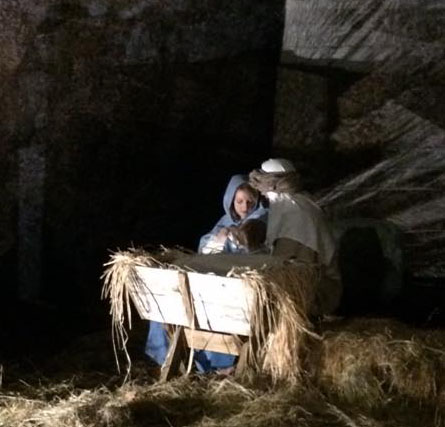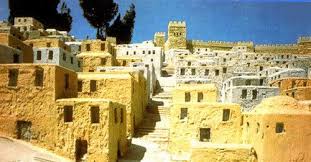Background Passages: Micah 5:2-4; John 6:25-36
You’ll hear it repeatedly in the weeks leading up to Christmas. One of the most cherished of all Christmas songs, will be sung by congregations and children’s choirs around the world.
“Oh, little town of Bethlehem,
How still we see thee lie,
Above thy deep and dreamless sleep
The silent stars go by,
Yet in the dark streets shineth
The everlasting light
The hopes and fears of all the years
Are met in thee tonight.”
It will be sung as a song of praise and celebration.
In his book Lifestories, Mark Hall, singer and songwriter for Casting Crowns, said he spent nine years trying to compose a new arrangement of Oh, Little Town of Bethlehem.
“I set out to use the hymn’s original lyrics but to spin them into my own version with different chords…I was playing with some chords and realized halfway through the first verse that I was 27 years old and had been singing the song since I was a kid without grasping its meaning.
“Halfway through the first verse, the whole point of the song hit me. They missed it! Bethlehem missed it. They never knew what happened. They had no idea the Messiah, the savior of the world, had fulfilled the prophecy of Micah 5:2 and was sleeping in a feeding trough in their very village.” Said Hall, “They slept through the whole thing.”
Look at the new lyrics written by Hall.
Oh, little town of Bethlehem,
Looks like another silent night.
Above your deep and dreamless sleep
A giant star lights up the sky.
And while you’re lying in the dark,
There shines an everlasting light.
For the King has left his throne
And is sleeping in a manger tonight.
Oh, Bethlehem, what you have missed while you were sleeping,
For God became a man
And stepped into your world today.
Oh Bethlehem, you will go down in history
As a city with no room for its king.
It’s a poignant song. Hall suggests that Bethlehem had no clue what God had done among them that night. Given the continued obscurity it experienced during Jesus’ ministry, he may not be far from the truth. After hearing his interpretation of the song, I could not help but think why would God begin his redemptive work in a village that seemed so unaware?
Why Bethlehem?
I have read enough scripture and experienced enough of God’s amazing work in my own life to know that nothing God does is happenstance. Bethlehem wasn’t chosen by a blindfolded creator who, after the angels spun him around, tossed a heavenly dart at the earth only to have it land in a little-known Judean village. God chose Bethlehem for a purpose. So…
Why Bethlehem?
It would be true, but simplistic, to say that God chose Bethlehem to fulfill a prophecy given to Micah 750 years before Jesus was born.
“But you, O Bethlehem Ephrathah, are only a small village among all the people of Judah. Yet, out of you will come for me one whose origins are from the distant past…And he will stand to lead his flock with the Lord’s strength, in the majesty of the name of the Lord, your God…And he will be the source of peace.” (Micah 5:2, 4)
I think there’s more to it than that. To call it just a fulfilled prophecy removes from the equation the genius of God as a storyteller and communicator. Throughout history God uses imagery to convey his truths. Metaphors. Parables. It’s not a stretch to think he chose Bethlehem specifically so he could point people to Jesus.
Knowing how he wanted the story to end, God did what any great author does when writing a compelling narrative. He dropped clues along the way. He chose Bethlehem to make a point you and I needed to remember every Christmas.
Beth in the Hebrew language means house of. Le’chem is the word for bread. Beth le’chem. Bethlehem…House of Bread.
Bread was survival to ordinary people of the first century. As the main source of nourishment, bread meant life. Priests used bread in Temple worship. It symbolized God’s provision to the Israelites by sending manna after their escape from Egypt and throughout their wilderness years. A gift of bread laid on the altar indicated that God alone was their provider. Their sustainer.
Jesus fed multitudes of people by breaking bread and sharing it with them, letting them eat until they had their fill with many loaves left over. The next day, the crowd found him again on the other side of the Sea of Galilee and they had some questions. Jesus answered them.
“I tell you the truth, you are looking for me, not because you saw miraculous signs but because you ate the loaves and had your fill. Do not work for food that spoils, but for food that endures to eternal life, which the Son of Man will give you.”
“What signs will you do? Our forefathers ate the manna in the desert…”
Jesus answered them, “I tell you the truth, it is not Moses who has given you the bread of heaven, but it is my father who gives you the true bread from heaven. For the bread of God is he who come down from heaven and gives life to the world.”
“’Sir, they replied, from now on, give us this bread.”
Then, Jesus declared, “I am the bread of life. He who comes to me will never go hungry, and he who believes in me will never be thirsty. But as I told you, you have seen me and still you do not believe.” (John 6:25-36)
Why Bethlehem?
Jesus was born in Bethlehem, the house of bread, to remind us that he is our bread of life. He was born in Bethlehem to be our provider. Our sustainer. Jesus was born in Bethlehem to offer himself to the world as bread that never spoils. Bread that brings eternal life.
Why Bethlehem?
Another reason he chose Bethlehem can be found in that prophetic word from Micah. Let’s look at it again.
“But you, O Bethlehem Ephrathah, are only a small village among all the people of Judah. Yet, out of you will come for me one whose origins are from the distant past…And he will stand to lead his flock with the Lord’s strength, in the majesty of the name of the Lord, your God…And he will be the source of peace.” (Micah 5:2, 4)
From the small, quiet and out of the way village, God did a mighty thing. He chose the insignificant to do something that would change the course of history and eternity, bringing his peace to his creation.
Maybe you and I are Bethlehem in that way. God doesn’t need the grand or the grandiose to change the world. He can use the most insignificant among us to point a world to Jesus. To share the bread of life. To be his voice, his hands, his heart in a world that has lost its way.
Why Bethlehem?
God chose Bethlehem to remind us that Jesus is the bread of life. Our provider and our sustainer. He chose Bethlehem to show us that he can use the lowest among us to point the way to the Most High.
Here’s the catch. Here is where we are too often most like Bethlehem. Bethlehem missed a heavenly opportunity. While the angels proclaimed the glory of God in the form of the child he sent to be the salvation of the world, Bethlehem slept right through it. Bethlehem made no room in their hearts for the savior. Mark Hall alludes to it in the final verse of his song.
Mary shivers in the cold, trying to keep the savior warm.
Born among the animals and wrapped in dirty rags because
there was no room for him
in the world he came to save.
Oh, Bethlehem, what you have missed while you were sleeping,
For God became a man
And stepped into your world today.
Oh Bethlehem, you will go down in history
As a city with no room for its king.
Why Bethlehem?
Maybe God chose Bethlehem to remind us that he chose to reveal himself to us. Maybe he chose Bethlehem to remind us that we cannot be sleeping and miss the opportunity to see God at work through Christ. To be Christ at work through that which he has called us to do.
The only way I can do that is to make room for my King…every day…every hour…every minute. I cannot be caught sleeping.
**********
Author’s Note: My church, South Main Baptist Church in Pasadena, hosts A South Main Bethlehem each year. This interactive experience allows you to experience life in the first century as you walk the streets of Bethlehem. Before you leave the village, the Nativity Scene will remind you of the true meaning of Christmas. The event will be from 5:00-8:30 p.m. December 9-11. Come and enjoy the experience. Let it remind you to make room for the King.




